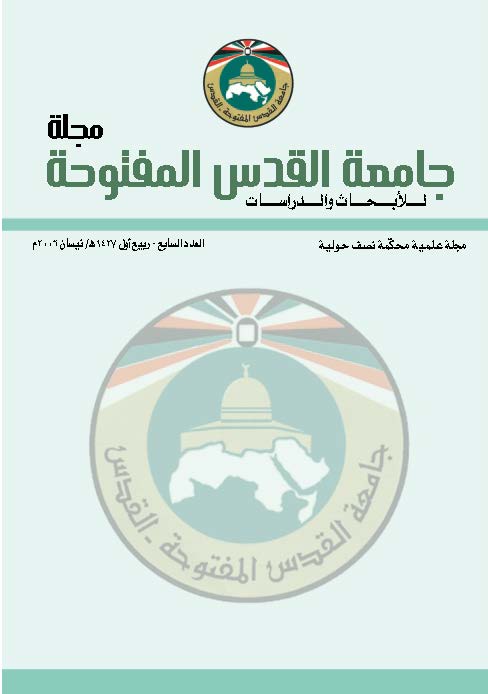القراءات القرآنية وأثرها في اختلااف الفقهاء
الكلمات المفتاحية:
القراءات القرآنية، اختلاف الفقهاء.الملخص
تناول هذا البحث موضوع "القراءات القرآنية وأثرها في اختلاف الفقهاء" وقد افتتح بتوطئة، اشتملت على: بيان أسباب اختلاف الفقهاء، وتعريف القراءات، وبيان أقسامها، وحكم القراءة بالشاذ، وموقف الفقهاء من الاحتجاج بشواذ القرآن في الاحكام الفقهية، ثم جاء الحديث عن أثر هذه القراءات في اختلاف الفقهاء، وانحصر ذلك في ثمانية مباحث، مان اختلاف القراءات فيها سبباً في اختلاف الفقهاء، ومن ذلك: فرض الرجلين في الوضوء، وحكم وطء الحائض بعد انقطاع الحيض وقبل الاغتسال، وتعيين الصلاة الوسطى، وحكم التتابع في قضاء رمضان، وحكم السعي بين الصفا والمروة،....إلخ.
التنزيلات
منشور
كيفية الاقتباس
إصدار
القسم
الرخصة
- الالتزام التام بأخلاقيات البحث العلمي.
- الالتزام التام بحقوق الملكية الفكرية.
- حقوق الطبع والنشر تؤول للمجلة.
- الحصول على موافقة المجلة لإعادة نشر البحوث أو ترجمتها.
- الالتزام التام بتعليمات هيئة تحرير المجلة.













_2.png)
_.png)
_2.png)
_1.png)
_.png)

